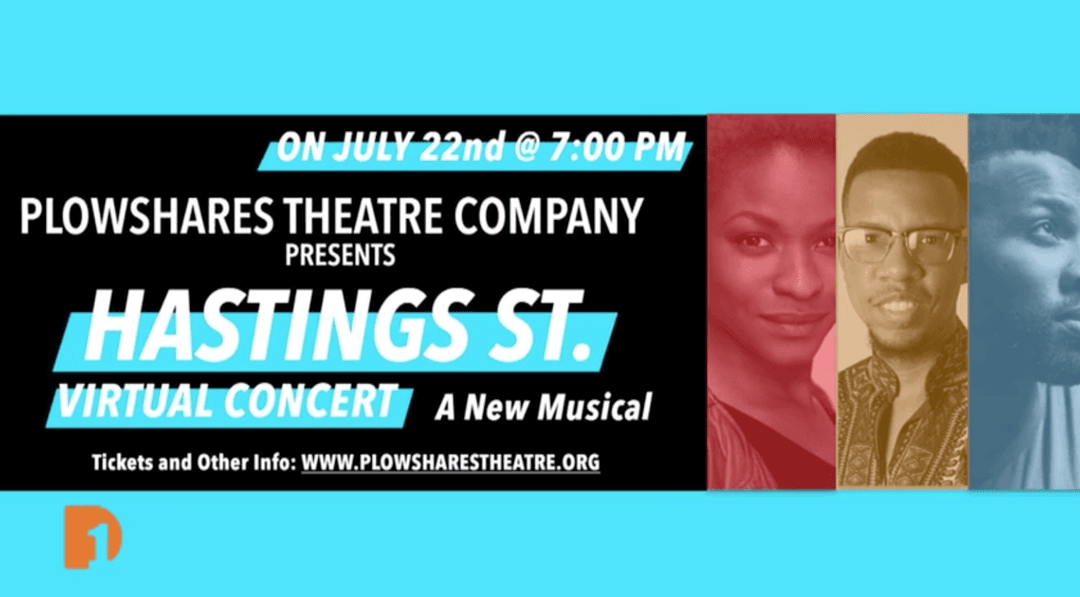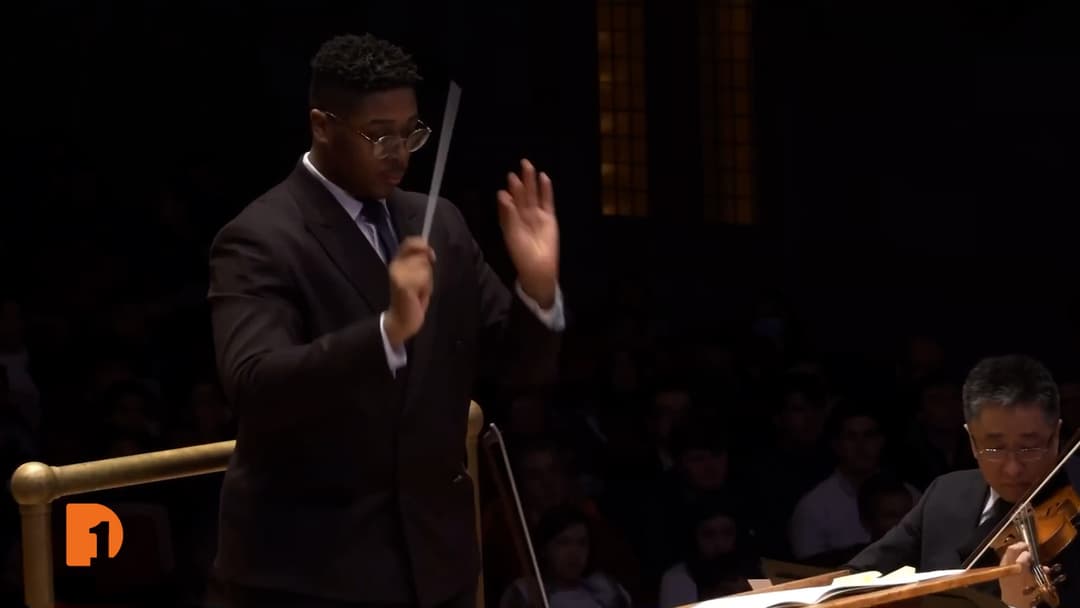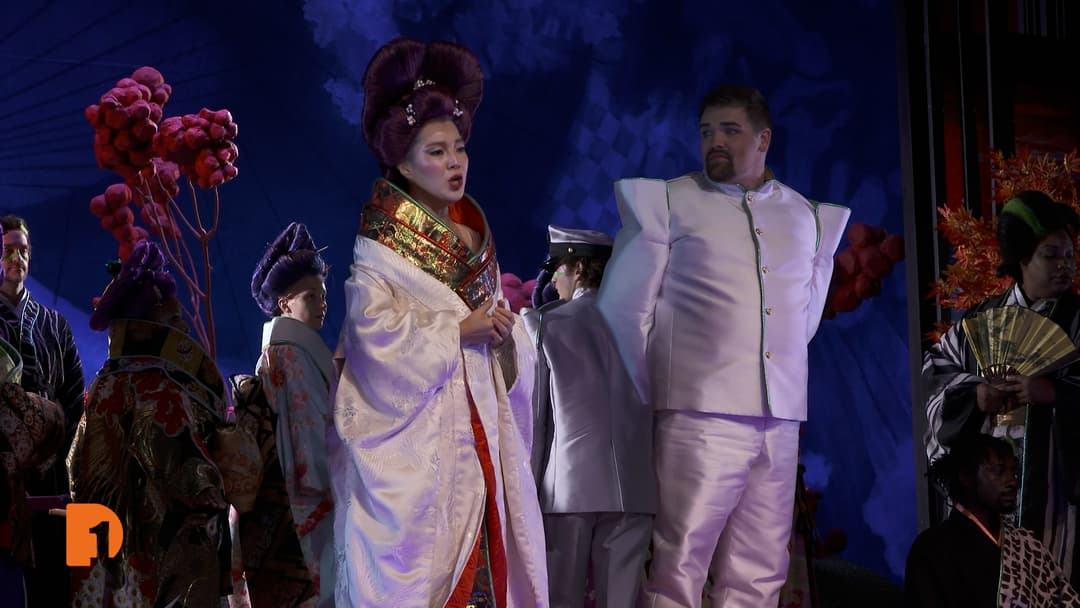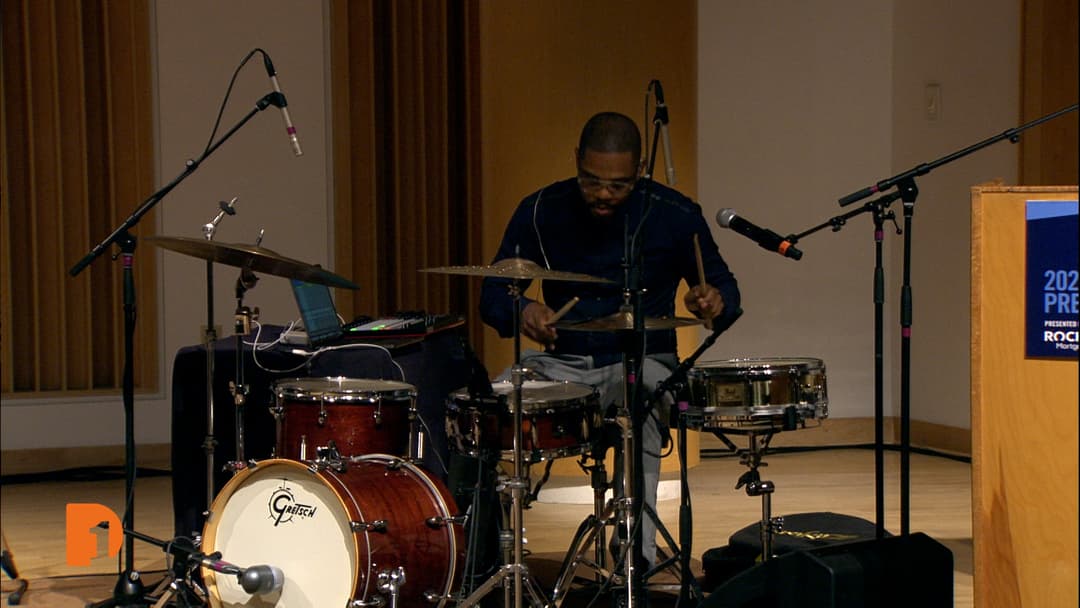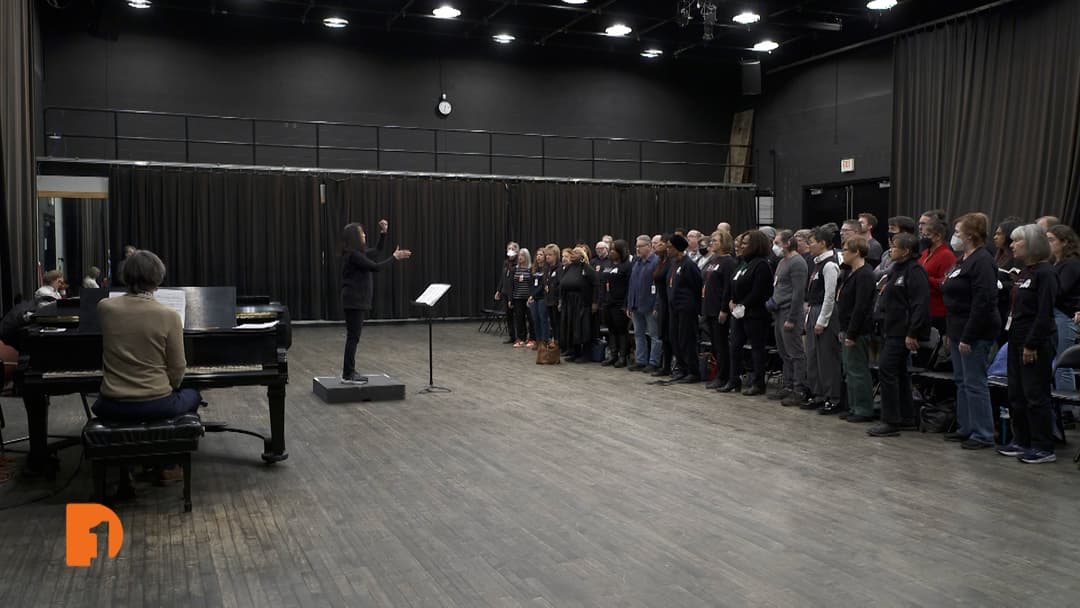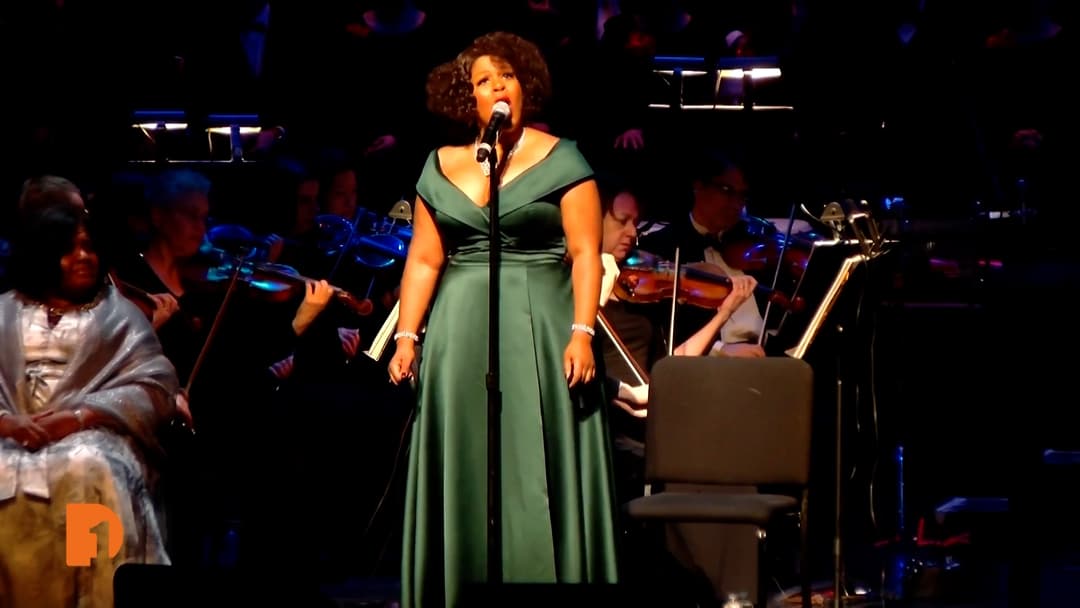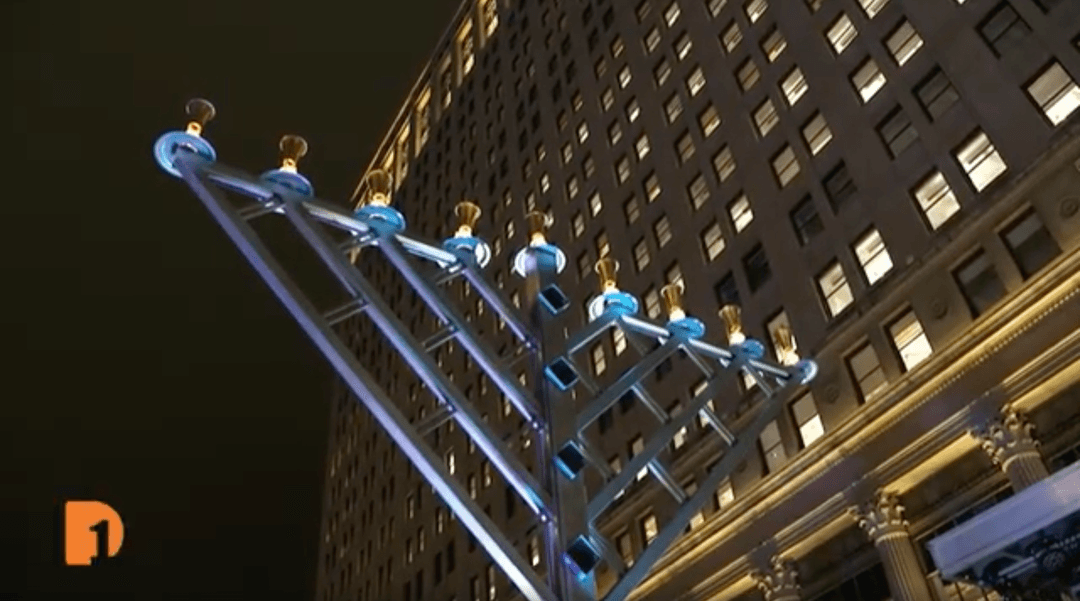UMS, University of Michigan, Philadelphia Orchestra Premiere ‘Fiddler on the Roof’ in Concert
Feb 15, 2022
The unique music of John Williams’ orchestrations from the 1971 film “Fiddler on the Roof” is finally coming to the theater stage for a first-ever live performance. The special “Fiddler on the Roof” concert performance will come to life on the University of Michigan’s Hill Auditorium stage on Feb. 19 and 20 thanks to a collaborative partnership with the University Musical Society, The Philadelphia Orchestra, and the University of Michigan’s School of Music, Theatre & Dance.
Before taking the stage, One Detroit’s Arts & Culture team sat down with key members from the upcoming performance to find out what audiences can expect from the concert and hear how the message of “Fiddler on the Roof,” continues to apply today.
Full Transcript:
Sarna Lapine, Stage Director, Fiddler on the Roof in Concert: The classics always teach us new things about the moment we’re living in now, which is why I think they’re always worth reviving even when they come with complicated histories.
Andy Einhorn, Music Director & Conductor, Fiddler on the Roof in Concert: “Fiddler on the Roof”, to me, is the most universal musical that was ever written. It’s a story about family, it’s a story about tradition.
Sarna Lapine: It’s just a brilliant piece of writing, from script, to score, to lyrics, it is just masterfully crafted. And while it is specifically meant to be about Jewish culture, I think through that specificity, it’s very universally about family, community, love, and loss. And I think anyone can relate to it because of those themes and because of the incredible score.
Kate Cummings, “Hodler”, Fiddler on the Roof Concert: What’s really incredible about this production, in particular, is that we’re using the John Williams arrangements from the movie, and it’s never been done before.
Chuck Cooper, “Tevye”, Fiddler on the Roof Concert: We’re doing it in front of a symphony orchestra. And so, the music is always a character in the musical. But in this instance, the orchestra is on stage and very definitely a huge character.
Kate Cummings: We get the benefits of these beautiful arrangements by John Williams, some that are only coming out for our production, which is really, really exciting. But we still get to, in my opinion, do the really exciting part of musical theater, which is the staging and the dancing.
Sarna Lapine: It sort of merges these two different forms of the story together into one, which I think is kind of neat. And, we have such a unique cast, that we have a cast of students with professionals like Chuck and Loretta, and then we have just some fabulous dancers. We have an incredible choreographer, Ali Solomon, and I think her work on this has just been outstanding. And we have a very multicultural cast. So the decision was also to recognize that Jewish culture is extremely diverse.
Andy Einhorn: And I think in the world that we’re living in today, to be able to tell this story with a multi-cultural and a very diverse cast is essential to listening, to watching, and to really appreciating the brilliance that is Fiddler on the Roof.
Kate Cummings: And I do think it’s important that the story be told specifically in modern times. Because there’s so much hate in the world right now.
Andy Einhorn: And I think one of the important moments of the social justice movement that we’re living through right now, is being able to look at pieces like “Fiddler on the Roof” through the lens of a contemporary eye, as well as understanding the historical context within which these pieces were written.
Sarna Lapine: When the musical was originally written, it was really very much about American Jews, and in that way it’s very much about all American immigrants. It’s about what it is to be displaced from your home, often for reasons that are beyond your control. And by losing everything or giving up everything, one has to face the unknown with some kind of hope that they will meet a better future. And I think that there’s so much uncertainty so many people’s lives were upended by the pandemic or even by current global political circumstances, that one has to hope for a better future.
Andy Einhorn: This piece also deals with issues of immigration, and as our country is unfortunately rife with more anti-Semitism to be telling a Jewish story right now feels incredibly necessary.
Kate Cummings: Specifically looking at antisemitism. I mean, that is a present issue. It has been an issue for hundreds and hundreds of years, and that is one thing that I think is an important story to continue to be told. I know I have developed such a deeper understanding and appreciation for the history of all of that.
Sarna Lapine: There was a lot of enthusiasm from the students to do this particular show, and they were incredibly thoughtful and insightful about wanting to understand a culture that might not have been their own. Of course, there are some Jewish students in the cast, but there are a lot who aren’t. And I’ve been incredibly impressed with how those conversations have been happening and how open everyone has been, and how thoughtful and engaged in research and conversation on the subject. It’s a very talented group of people.
Chuck Cooper: I’m truly amazed and taken aback by Hollywood and the quality of talent among these young people. They are, as we say, in musical theater, fierce. They are, they’re just stunning individuals.
Andy Einhorn: And what I keep stressing to the students, is that this is as good as it gets, in terms of when you’re able to bring this many top-notch organizations together to collaborate and to truly understand the word collaboration because we’re all learning from one another.
Kate Cummings: Working with a partially professional cast is also just so incredible. The cast could not have been more gracious of sharing the space with us. And I’m just trying to take in as much information that I can from how they are approaching the work.
Sarna Lapine: Kind of couldn’t ask for a more meaningful show and a more meaningful situation, because it’s just this spectrum of experience coming together. And I think that symbolically, it sort of feels like a new beginning and a great point of entry for making work together again.
Subscribe to One Detroit’s YouTube Channel & Don’t miss One Detroit Mondays and Thursdays at 7:30 p.m. on Detroit PBS, WTVS-Channel 56.
Catch the daily conversations on our website, Facebook, Twitter @DPTVOneDetroit, and Instagram @One.Detroit
View Past Episodes >
Watch One Detroit every Monday and Thursday at 7:30 p.m. ET on Detroit Public TV on Detroit Public TV, WTVS-Channel 56.
Stay Connected
Subscribe to One Detroit’s YouTube Channel and don’t miss One Detroit on Thursdays at 7:30 p.m. and Sundays at 9 a.m. on Detroit PBS, WTVS-Channel 56.
Catch the daily conversations on our website, Facebook, Twitter @OneDetroit_PBS, and Instagram @One.Detroit
Related Posts
Leave a Reply
Your email address will not be published. Required fields are marked*







